第8章 GENERAL THEORIES OF PSYCHOLOGY(6)
(The ancient materialistic dualism of DEMOCRATES had not yet differentiated itself from spiritualistic dualism). HOBBES, together with LA METTRIE and HOLBACH developed in the 18th century a mechanical materialism, while DIDEROT and HELVETIUS developed a psychophysical materialism which has representatives even in present times. Spiritualistic monism first arose in the monadology of LEIBNIZ. In modern times this has been taken up by HERBART and his school, by LOTZE, and others. The establishment of the psychology of the inner sense may be properly attributed to JOHN LOCKE (16321704). This form of psychology has been defended in modern times, to some extent by KANT, and with special emphasis by EDUARD BENEKE, (17981854), K. FORTLAGE, and others. Modern facultypsychology arose with the work of CHRISTIAN WOLFF (16791754), who distinguished as the chief faculties, knowledge and desire. Since the time of TETENS (17361805) three faculties have been more commonly accepted than WOLFF'S two. PLATO named these three, as did also KANT. They are knowledge, feeling and desire. Logical intellectualism is the oldest of the explanatory forms of psychology. This corresponds directly to the popular interpretation of psychical processes. The earlier empiricists, as for example LOCKE, and even BERKELEY (16481753) who in his "Essay towards a New Theory of Vision" anticipates modern experimental psychology, are to be classed as representatives of logical intellectualism.
This view is at the present time to be found in the psychological discussions indulged in by physiological writers, when they treat of such topics as sense perception. Among the philosophical representatives of this logical intellectualism in our day, one must mention especially FRANZ BRENTANO and his school. Association psychology is first found in the works of two writers who appear at about the same time, namely, DAVID HARTLEY (17041757) and DAVID HUME (17111776). These two writers represent, however, two different tendencies which continue even in presentday psychology.
HARTLEY's association psychology refers the association processes to certain physiological conditions, while HUME's regards the association process as a psychological process. The first form allies itself, accordingly, to psychophysical materialism; this is found in the works of such a modern writer as HERBERT SPENCER. Closely related to HUME's psychological associationism is the psychology of HERBART. HERBART's doctrine of the statics and mechanics of ideas is a purely intellectualistic doctrine.
(Feeling and volition are here recognized only as certain phases of ideas).
It is in agreement with associationism in its fundamental mechanical view of mental life. This similarity is not to be overlooked merely because Herbart sought through certain hypothetical assumptions to give his psychological discussions an exact mathematical form. There are many anticipations of voluntaristic psychology in the works of psychologists of the "pure introspection" school, and of the association schools. The first thorough-going exposition of this form of psychology was the work of the author of this Outlines of Psychology in his psychological treatises. It is to be noted that this psychological voluntarism, as, indeed, one can see from the description which has already been given, is to be clearly distinguished from metaphysical voluntarism as developed by such a writer as SCHOPENHAUER. Metaphysical voluntarism seeks to reduce everything to an original transcendental will, which lies back of the phenomenal world and serves as a substratum for this world. Psychological voluntarism on the other hand, looks upon empirical volitional processes with their constituent feelings, sensations, and ideas, as the types of all conscious processes. For such a voluntarism even volition is a complex phenomenon which owes its typical significance to this very fact that it includes in itself the different kinds of psychical elements.
References . Psychology of the inner sense: LOCKE, An Essay concerning Human Understanding, 169o. EDUARD BENEKE, Psychologische Skizzen, 2 vols., 18251827, and Lehrbuch der Psychologie als Naturwissenschaft, 1833, 4th ed. 1877. K. FORTLAGE, System der Psychologie, 2 Vols., 1855. Facultypsychology:
CHRISTIAN WOLFF, Psychologia empirica, 1732, Psychologia rationalis, 1734; and Vernunftige Gedanken von Gott, der Welt, der Seele des Menschen etc., 1719. TETENS, Philosophische Versuche uber die menschliche Natur, 17761777.
KANT, Anthropologie, 1798 (a practical psychology, well worth reading even at this late date because of its many nice observations).